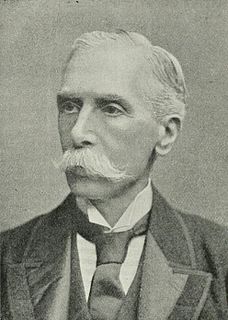A Quote by Alfred Austin
Exclusiveness in a garden is a mistake as great as it is in society.
Related Quotes
The real issue relating to exclusiveness is whether or not the Christian actually has a relationship with God, a presence of God, which non-Christians do not have. Apart from Christian spiritual formation as described here, I believe there is little value in claiming exclusiveness for the Christian way.
But in this world of morally-warped phenomena there are rare and happy exceptions of truly great magnitude, which always pay dearly for their exclusiveness and fall a prey to their own superiority. Natures of genius, themselves unaware of their genius, they are relentlessly killed by an unconscious society as an expiatory sacrifice to its own sins … Such is Pushkin’s Tatiana.
I find one vast garden spread out all over the universe. All plants, all human beings, all higher mind bodies are about in this garden in various ways, each has his own uniqueness and beauty. Their presence and variety give me great delight. Every one of you adds with his special feature to the glory of the garden.
Bad Gardens copy, good gardens create, great gardens transcend. What all great gardens have in common are their ability to pull the sensitive viewer out of him or herself and into the garden, so completely that the separate self-sense disappears entirely, and at least for a brief moment one is ushered into a nondual and timeless awareness. A great garden, in other words, is mystical no matter what its actual content.
It is not a mistake to commit a mistake, for no one commits a mistake knowing it to be one. But it is a mistake not to correct the mistake after knowing it to be one. If you are afraid of committing a mistake, you are afraid of doing anything at all. You will correct your mistakes whenever you find them.
It is a great mistake to suppose that bribery and corruption, although they may be very convenient for gratifying the ambition or the vanity of individuals, have any great effect upon the fortunes or the power of parties. And it is a great mistake to suppose that bribery and corruption are means by which power can either be ob-tained or retained.
We live in an age of science and of abundance. The care and reverence for books as such, proper to an age when no book was duplicated until someone took the pains to copy it out by hand, is obviously no longer suited to ’the needs of society’, or to the conservation of learning. The weeder is supremely needed if the Garden of the Muses is to persist as a garden.






































